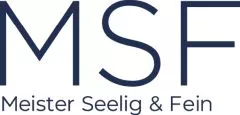On June 20, 2023, the New York State Legislature passed a bill, which would have banned the creation and enforcement of non-compete clauses in agreements with covered individuals. After intense lobbying by New York's business community and failed attempts by Governor Hochul to have the legislature modify the bill, Governor Hochul recently vetoed the bill. If signed, New York employers would have been prohibited from enforcing non-competition agreements signed after the law took effect. This legislation came on the heels of other states enacting restrictions on non-competes and the federal government proposing a nationwide ban on non-competes. This will not likely be the end of non-compete legislation in New York.
The New York Bill
The New York State Assembly and Senate passed a bill banning the creation and enforcement of non-compete clauses in agreements with covered individuals. (collectively, the "Bill"). If it had been signed by the Governor, the Bill would have become effective within 30 days after signed into law and would have made it unlawful for an employer to "seek, require, demand, or accept" a non-compete clause. It would also have voided the entirety of any agreement entered into after the effective date that contained a non-compete clause. In addition, the Bill created a private right of action for a covered individual to bring a civil suit against an employer who had allegedly violated the non-compete ban. After intense lobbying efforts by the New York business community and failed attempts to have the legislature modify the bill to prohibit non-competes for those earning under $250,000 per year only, Governor Hochul recently vetoed the bill.
Covered Individuals
The Bill defined a non-compete agreement broadly. Non-compete agreement included "any agreement, or clause contained in any agreement, between an employer and a covered individual that prohibits or restricts such covered individual from obtaining employment after the conclusion of employment with the employer included as a party to the agreement."
The Bill clearly applied to employees and, while not explicit, appeared to apply to non-employees as well. The Bill defined a "covered individual" as "any other person who, whether or not employed under a contract of employment, performs work or services for another person on such terms and conditions that they are, in relation to that other person, in a position of economic dependence on, and under an obligation to perform such duties for, that other person." The broad language suggests that the Bill may have applied to agreements with independent contractors, consultants and other non-employees.
Not Retroactive
The Bill did not apply to existing agreements containing a non-compete clause. The Bill only banned non-compete clauses created on or after the Bill's effective date, which would have been 30 days after the Bill was signed into law.
While the plain language of the Bill did not appear to void existing non-compete agreements or prevent employers from enforcing such agreements, it could have had the potential to impact public policy considerations by courts asked to enforce existing agreements.
Limited Exceptions
The Bill contained a carveout permitting employers to enter into other restrictive covenants "provided that such agreement does not otherwise restrict competition," including those that:
(i) prohibit disclosure of trade secrets, of confidential and proprietary client information; or
(ii) prohibit the solicitation of clients of the employer that the covered individual learned about during employment would not be found to be in violation.
The Bill did not address whether non-solicitation agreements of the employer's employees would continue to be permitted. Such restrictions would have likely remained enforceable subject to the existing reasonableness test under New York common law.
Notably, the Bill did not provide a carveout for a sale of business meaning that non-compete provisions in purchase and sale agreements would have been prohibited as well.
The Nationwide Trend Towards Restrictions on Non-Compete Clauses
The New York Bill joined a growing national trend towards limiting the enforcement of non-compete clauses.1
As described in our prior client alert, the Federal Trade Commission ("FTC") has signaled its intent to ban non-compete clauses through a proposed rule published earlier this year. The FTC had an extended comments period for the proposed rule and is expected to vote on the rule in April 2024.
The National Labor Relations Bureau ("NLRB") also recently issued a memorandum from its General Counsel advising that non-compete clauses constitute a violation of the National Labor Relations Act. The memo, released on May 30th, 2023, details how non-compete clauses "chill" Section 7 employees' negotiating rights when it comes to issues such as better working conditions or compensation. Due to these effects, the memo takes the stance that non-compete clauses should be found in violation of Section 8(a)(1) of the NLRA as non-compete clauses tend to "interfere with, restrain, or coerce employees." While the memo does not enact a new rule, it signals a continuing attack by the federal government agencies on these provisions.
Additionally, many other states have already taken steps to restrict the use of non-compete clauses (e.g., California, Minnesota, Massachusetts, Maryland, Oregon).
Recommendations For Employers
Although the current New York legislation was vetoed, we expect to see more on the non-compete front at the federal, state and local level in 2024. New York employers who utilize or plan to utilize non-competes with their employees or contractors should continue to carefully consider the use of non-compete provisions in the interim, review documents that contain non-compete provisions that may be used on a go forward basis and begin to explore alternatives to non-compete clauses, such as non-disclosure, non-solicitation clauses or garden leave provisions, that provide other forms of protections for a company's proprietary information and relationships.
Please contact an attorney in MSF's Employment Group if you need assistance with respect to this information.2
Footnotes
1 On June 8, 2023, the City Council of New York City introduced a similar piece of legislation banning non-competes. Notably, the current version of this legislation would apply retroactively to existing agreements with non-compete clauses. No action appears to have been taken on the legislation after its introduction. As of December 31, 2023, the legislation was marked as Filed (End of Session).
2 Gregg M. Kilman and Samantha Frenchman (previous MSF Employment Attorneys) and MSF Summer Associate Jordan Biener (J.D. Candidate 2024 at St. John's University School of Law) contributed to the initial publication of this Client Alert in June 2023.
The content of this article is intended to provide a general guide to the subject matter. Specialist advice should be sought about your specific circumstances.

